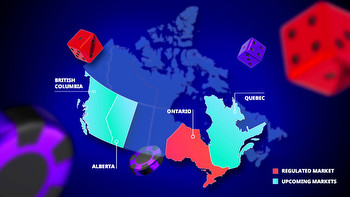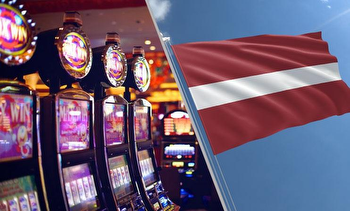All About Different Casino Licenses In The World

The world of casinos is doubtlessly a thrilling and lucrative industry. It has captivated the imaginations of millions of people around the globe. However, the establishment and operation of a casino require proper licensing to ensure fairness, transparency, and responsible gambling practices. And for that, you’ll always need to ensure that the casino you choose online has a license. Moreover, ensure that you can securely use it in your country.
In this article, you can learn all about the world of casino licenses, if you, say, want to try a casino without a Swedish license a try. To stay safe, let’s explore the various types of licenses issued worldwide and their significance in the gambling industry.
What is a casino license?
1. Definition and purpose
A casino license is a legal document issued by a regulatory authority. It permits an individual or organization to operate a casino legally. The license serves as a guarantee that the establishment adheres to strict regulations. They promote fair play and protect the interests of both players and the industry.
2. Regulatory bodies
Different countries and regions have their own regulatory bodies for issuing casino licenses. Some well-known regulatory bodies include the United Kingdom Gambling Commission (UKGC), the Malta Gaming Authority (MGA), the Nevada Gaming Control Board (NGCB), and the Isle of Man Gambling Supervision Commission (GSC).
Types of casino licenses
- Online casino licenses: In the digital age, online casinos have gained immense popularity. These casinos require online casino licenses. It is only granted to operators who meet specific criteria related to security, player protection, and fair gaming criteria. Regulatory bodies issue online casino licenses. It includes the UKGC, MGA, and Kahnawake Gaming Commission (KGC).
- Land-based casino licenses: Land-based casinos are physical places where players play various casino games. The licensing process for land-based casinos involves thoroughly evaluating the operator’s financial stability, gaming equipment, and security measures. It also includes adherence to responsible gambling practices. Regulatory bodies like the NGCB in Las Vegas and the Singaporean Casino Regulatory Authority (CRA) issue these licenses.
Key considerations for obtaining a casino license
Background checks and financial stability: Regulatory bodies conduct rigorous background checks on applicants. This ensures they have no criminal record and are financially stable to operate. This includes assessing the source of funds for the establishment and ongoing operation of the casino.
Responsible gambling measures: To protect players, regulators require casino operators to implement responsible gambling measures. This includes age verification, self-exclusion programs, and addiction prevention initiatives. Compliance with these measures is crucial for obtaining and maintaining a casino license.
Benefits and responsibilities of holding a casino license
1. Benefits of holding a casino license
Obtaining a casino license provides several benefits. It increases credibility and trust among players and access to reliable payment providers. It also shows the ability to partner with reputable software providers. Licensed casinos also have a competitive advantage in the market. It attracts more customers and generates higher revenues.
2. Responsibilities of license holders
Casino license holders are responsible for upholding the highest standards of integrity, transparency, and customer protection standards. They must ensure fair gaming practices. Furthermore, they must prevent money laundering and fraud. And lastly. Follow all applicable laws and regulations. Regular audits and inspections by regulatory bodies help maintain compliance.
Global differences in casino licensing
- Comprehensive Licensing Frameworks
Some countries have established comprehensive licensing frameworks that govern the entire gambling industry. These frameworks provide a clear and structured approach to casino licensing. This ensures transparency, fairness, and responsible gambling practices. The United Kingdom is an example of a country with a well-developed licensing framework. It is overseen by the United Kingdom Gambling Commission (UKGC). The UKGC sets stringent standards for license applicants. This includes requirements for financial stability, player protection measures, and anti-money laundering protocols.
- State-Specific Regulations
In contrast to comprehensive frameworks, certain countries, such as the United States, have state-specific regulations governing casinos. This approach gives individual states the authority to determine their own licensing requirements and regulations. As a result, licensing processes and criteria may differ significantly across different states. For instance, Nevada, home to the famous Las Vegas Strip, has a highly regulated casino industry overseen by the Nevada Gaming Control Board (NGCB). In other states, casino licenses may be limited to Native American tribal lands, subject to separate regulatory bodies and agreements.
- Offshore Casino Licensing
Offshore casino licensing refers to licenses issued by jurisdictions. These jurisdictions are known for their favorable tax rates and regulations. Often located in small countries or territories, these jurisdictions attract operators seeking cost-effective and flexible licensing options. Popular offshore licensing jurisdictions include Malta, Gibraltar, and Curacao. While offshore licensing offers certain advantages, such as lower taxes and streamlined processes, players should exercise caution when engaging with offshore-licensed casinos. Some jurisdictions may have looser regulatory oversight. This can potentially compromise player protection and fair play.
- Regional Licensing Arrangements
In some regions, countries have formed regional licensing agreements for casino operations.
The European Union (EU) is a good example of this, with its “European Economic Area” system. This system allows licensed casino operators from one EU member state to provide services in other member states without requiring additional licenses.
However, each participating country still maintains its regulatory bodies. They also oversee compliance with specific regulations within its borders.
Cultural and Religious Factors
Cultural and religious factors have a significant impact on casino licensing policies worldwide. Those who frown upon gambling and are religious and cultural may have strict restrictions. Some place outright bans on casino licenses. For example, Muslim countries such as Saudi Arabia and Iran do not allow gambling. As a result, obtaining a casino license in these jurisdictions is unlikely.
The wrap-up
In a nutshell, the global differences in casino licensing reflect the approaches of countries to regulate and oversee gambling. From comprehensive frameworks to state-specific regulations, offshore licensing, regional arrangements, and cultural considerations, each jurisdiction tailors its licensing system to align with its unique legal, cultural, and economic circumstances. Understanding these differences is crucial for both operators and players. It helps navigate the complexities of the global casino landscape. It also ensures compliance with the respective laws and regulations in different jurisdictions.


































